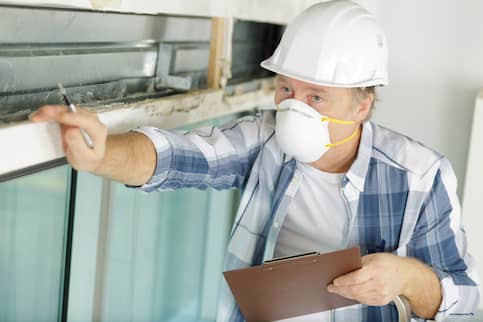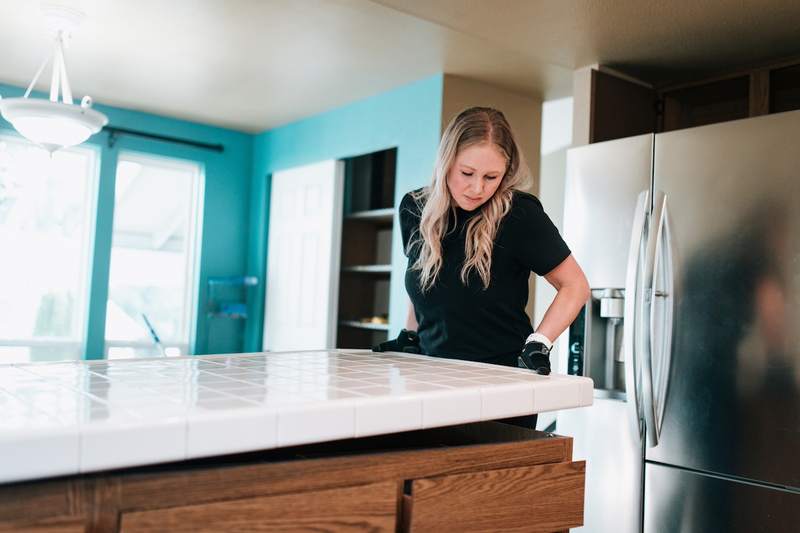When you get a home loan, your lender has to have a third party place a value on your property because the real estate is collateral for your loan. The value of the property relative to the size of the loan also has an impact on your interest rate and monthly payments. You also have to have a home value for a second mortgage. Today, we’ll discuss a home equity loan appraisal.
Do You Need An Appraisal For A Home Equity Loan?
Most lenders are going to require an appraisal to get a home equity loan. There are several reasons for this that we’ll get into below, but at a high level, it comes down to risk management. If you default on the loan, your lender has to try to make back their investment in a sale.
See What You Qualify For
Buy A Home
Discover mortgage options that fit your unique financial needs.

Refinance
Refinance your mortgage to have more money for what matters.
Tap Into Equity
Use your home’s equity and unlock cash to achieve your goals.
Why Does A Home Equity Loan Require An Appraisal?
One of the ways that lenders mitigate risk is limiting how much you can borrow. Along with your credit score, the value of your home is a key determining factor in your loan amount.
Home equity can be defined as the difference between your home value and the remaining balance on your mortgage. This is an important number to understand because it’s part of determining how much you can take out through a home equity loan or cash-out refinance.
As an example, if you owe $300,000 on your mortgage and your home is worth $400,000, you have $100,000 worth of equity.
When lenders evaluate your eligibility and to determine how much they’re willing to lend you, they look at loan-to-value ratio (LTV). LTV compares your remaining mortgage balance to the value of your property. The following formula applies:
Mortgage Balance
__________________________ × 100
Home Value
In the case of our above example, your current LTV would be 75% ($300,000 ÷ $400,000 = 0.75). To determine how much you can borrow, you need to know the maximum LTV a lender is willing to approve. Once you know that, here’s the formula for determining how much you can borrow.
Home value × Maximum LTV – Primary Mortgage Balance
Again, using our prior example, if you qualified credit-wise, you can borrow up to $60,000 ($400,000 × 0.9 – $300,000 = $60,000). Once you know how much you can borrow, you can use this to help determine whether this is the right option to accomplish your goals.
Turn your home equity into cash.
See how much you could get.
Types of Appraisals For Home Equity Loans
When it comes to home equity loans, depending on the lender and the situation, you might encounter any of several different types of appraisal. Let’s take a quick look at each of them.
Full Appraisal
When most people think of a home appraisal, they think of someone showing up at their door to walk through their home and evaluate the safety, condition and overall worth of the property. This is a full appraisal. It’s the most common type of appraisal used for home equity loans.
In a complete appraisal, the appraiser will evaluate a couple of different factors. The first is the safety and structural soundness of the property. They have basic guidelines like the roof needing to have a certain lifespan left and no exposed floorboards or studs. If major issues are found, they’ll need to be fixed before you can close the loan.
The second thing an appraiser evaluates is home value. They’ll do this by evaluating your home against comparables. For example, if you were looking to get a home equity loan on a three-bedroom ranch, the appraiser would compare your home against recent sales of other three-bedroom ranches with similar square footage in your area.
You do get points for features unique to your home – maybe you recently added granite countertops or renovated the bathroom – but finding comparables gives an appraiser a starting point.
Automated Valuation Model (AVM)
An AVM uses vast data sets available to mortgage investors to assign a value to your property on the basis of what the model knows about your home and the value of other similar homes in your area.
The benefits here are twofold: First, there’s the convenience. You don’t have to set aside several hours to be at home so someone can walk through it and assign a value. Second, because no one has to do anything, you may not have to pay for anything.
However, there are weaknesses as well. You’re at the mercy of the model. Any model can be based on flawed assumptions. There is also the issue of having data that’s up to date. If the model was last updated 6 months ago, you may not get credit for renovating your bathroom last month.
Drive-By Appraisal
A drive-by appraisal, also referred to as an exterior-only appraisal, involves an appraiser stopping by a home to look at the outside and verify its condition. Other evaluation of the property is done through models and public records requests (think blueprints and permits pulled).
A drive-by appraisal is convenient and they gained popularity during the pandemic. However, it suffers from the same drawbacks in that you may not get credit for recent improvements.
Desktop Appraisal
A desktop appraisal uses publicly and privately available records along with available photos for an appraiser to put a value on your home without physically coming to your home to do the appraisal. Again, this can be very easy on the homeowner, but it may not consider the most recent changes made to a home depending on the age of records.
How To Prepare For Your Home Equity Loan Appraisal
There are several things you can do to help prepare for your appraisal. Here’s a quick list:
- Fix what you can. In order to pass an appraisal, you’ll need to fix any major damage that could impact the value of the home. Even if it’s not a major issue, it can still impact the value, so you can put yourself in the best position for a successful appraisal by doing as much as you can to put your best foot forward. This includes curb appeal.
- Research comparable home values. While this won’t help with the value itself, it does help you have realistic expectations about what your home is worth. This will help you figure out if a home equity loan is likely to help you accomplish your goals.
- Be ready to answer questions. As they evaluate your home, an appraiser may have several questions. Be ready to answer them. This is your opportunity to provide clarity.
- Clean house. Cleanliness isn’t allowed to be a factor in your home value and it’s not necessary to go through with a white glove, but you do want to make sure that the appraiser has easy pathways to access your entire house.
Can You Get A Home Equity Loan Without An Appraisal?
Most lenders require an appraisal to get a home equity loan. There may be circumstances in which the loan is small enough and a lender you have a preexisting relationship with could possibly approve a home equity loan without doing an appraisal, but know that the amount you can borrow may be strictly limited.
Get a Home Equity Loan online.
Let’s match you up with lenders who can help with your unique financial situation.
Alternative No-Appraisal Financing Options
There are certain loan options that may be available which don’t always require an appraisal. Let’s run through them real quick.
- Home equity lines of credit (HELOCs): HELOCs may not always require an appraisal, but it’s a similar situation to a home equity loan where you may have to have a pre-existing relationship and there may be strict limits.
- Personal loans: Personal loans aren’t secured by any property so no appraisal is necessary. Interest rates on this would be higher than mortgages, but lower than credit cards.
- Cash-out refinance: Depending on the rate you can get, it may make more sense to do a cash-out refinance of your existing mortgage rather than take out a separate home equity loan because being based on your primary mortgage can mean a lower rate. In addition, sometimes you can get an appraisal waiver. For example, you may be able to get an appraisal waiver on a primary residence if you’re still leaving at least 30% equity in your home.
The Bottom Line
You are generally required to get an appraisal in order to qualify for a home equity loan. It’s typically a full appraisal. There are alternatives, but they have the drawback that you may not be getting the full benefit of your most recent home improvements depending on the age of the data used.
To get ready for an appraisal, you can do some simple things like research the market and fix what you can in your home. It may be possible to get a home equity loan without an appraisal, but lenders and borrowing amounts may be limited here.
Personal loans don’t require appraisals and HELOCs and cash-out refinances have instances where an appraisal isn’t always required. However, the important thing is to figure out which loan option is best for you.

Kevin Graham
Kevin Graham is a Senior Writer for Rocket Companies. He specializes in economics, mortgage qualification and personal finance topics. As someone with cerebral palsy spastic quadriplegia that requires the use of a wheelchair, he also takes on articles around modifying your home for physical challenges and smart home tech. Kevin has a bachelor's degree in journalism from Oakland University.












